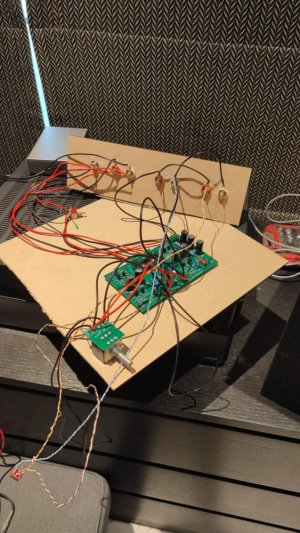rageisthan
New Member
Background: I have no experience with engineering as I come from a commerce background but am super eager to learn!
Main story:
I am super interested in understanding how each component of the audio chain works, than includes getting the basics about electricity and electrical components cleared out. And the best tuition fee one can pay is by undertaking DIY projects and getting one's hands dirty. I know this is a very expensive route to take, in terms of time, mental peace and money, but I feel it would be worth it. So, could someone please suggest me some beginner friendly projects to start out with that would help me better grasp the concepts? The end goal would be to complete a SS AMP, TUBE AMP and a PreAmp.
Thanks for taking out the time to read! Any help on my journey would be super helpful.
PS: I know the risks involved with electricity and would be super careful at all times.
PPS: I have been reading a lot on the DIYAudio community but getting those project kits to India (After customs) seems to be burning a hole, I mean, I could build 2 Amp Camp Amps in USA for the price of one in India
Main story:
I am super interested in understanding how each component of the audio chain works, than includes getting the basics about electricity and electrical components cleared out. And the best tuition fee one can pay is by undertaking DIY projects and getting one's hands dirty. I know this is a very expensive route to take, in terms of time, mental peace and money, but I feel it would be worth it. So, could someone please suggest me some beginner friendly projects to start out with that would help me better grasp the concepts? The end goal would be to complete a SS AMP, TUBE AMP and a PreAmp.
Thanks for taking out the time to read! Any help on my journey would be super helpful.
PS: I know the risks involved with electricity and would be super careful at all times.
PPS: I have been reading a lot on the DIYAudio community but getting those project kits to India (After customs) seems to be burning a hole, I mean, I could build 2 Amp Camp Amps in USA for the price of one in India


